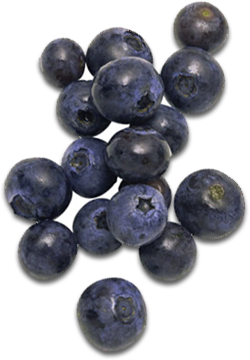no items to display
Soda vs. Juice Plus+: How Each Affects Your Body
Have you seen the infographic going around Facebook called “What happens one hour after drinking a can of Coke”?
Pretty scary stuff, isn’t it? Spikes in blood sugar, increases in fat storage, surges in blood pressure, drug-like dopamine highs, nutrient losses…
Scientists assert that some of the claims in this infographic are exaggerated. Whether glucose is stored as fat depends on activity level, for instance. And many pleasurable activities, like listening to music, also release dopamine.
However, what no one disputes is that daily consumption of soda is not a healthy choice. And according to the CDC, half of all Americans drink a sugar-sweetened beverage on any given day. The big jolt of sugar and the empty calories aren’t doing anyone’s body any favors. What does do your body a favor? Eating fresh fruits and vegetables at every meal and taking Juice Plus+!
Here is how Juice Plus+ affects your body compared to how a can of soda does, as demonstrated in human clinical research.
Healthy Gums and Teeth: What’s the connection between nutrition and dental health? The fruit and vegetable nutrition in Juice Plus+ helped improve gum health and reduce bleeding in a double-blind, placebo-controlled trial of 61 subjects. Another recently conducted double-blind, placebo-controlled study of 183 patients undergoing wisdom tooth extraction found that those who took Juice Plus+ fared significantly better in the week after surgery than those who took a placebo.
By contrast, soda has a detrimental effect on oral health. It is recognized as a cause of tooth decay and erosion, and the University of Iowa College of Dentistry also warns it can be a factor in gum disease.[1],[2]
Heart Health and Inflammation: Juice Plus+ provides nutrition for a healthy heart. Several studies have found that participants who took Juice Plus+ were better able to maintain the normal, healthy elasticity of their arteries, even after consuming a high-fat meal. Juice Plus+ has also demonstrated positive effects on several markers of heart health, including maintaining normal levels of the waste product homocysteine.
Juice Plus+ also supports a healthy inflammatory response. Two double-blind, placebo-controlled studies with a total of 158 subjects found that Juice Plus+ significantly decreases key markers of inflammation that can contribute to chronic health conditions.
On the other hand, both regular and diet varieties of soda have been linked to heart disease in large-scale observational studies. One of these studies also found sugar-sweetened soda contributed to inflammation. [3],[4]
Immune System, DNA Protection, and Oxidative Stress: Studies have shown Juice Plus+ supports immune function in various populations, including health care professionals with direct patient contact, young law students, older adults, and male athletes. In one study, taking Juice Plus+ during the cold weather season reduced upper respiratory symptoms by 20%.
Juice Plus+ also provides DNA protection. The combined results of three studies show Juice Plus+ protects DNA from oxidative stress among young, middle-aged, and elderly populations, thus supporting cell health.
Additionally, several studies have found Juice Plus+ reduces oxidative stress, a state wherein the body’s antioxidant capacity is overwhelmed by free radicals. Similarly, 11 trials show that Juice Plus+ raises blood levels of key antioxidants.
Soda, meanwhile, weakens the immune system and its DNA. A study of over 5,000 adults found that a soda-drinking habit can actually damage the DNA of your immune cells, aging them and leaving them less able to fend off immune challenges.[5] The lead researcher noted that soda drinking can also lead to inflammation and oxidative stress.[6]
How often do you drink soda vs. take Juice Plus+? Do you have any healthy alternatives to soda?
References:
[1] Cheng R, et al. Dental erosion and severe tooth decay related to soft drinks: a case report and literature review. J Zhejiang Univ Sci B. 2009 May;10(5):395-99.
[2] Gum (periodontal) disease. University College of Dentistry and Dental Clinics. 2015. https://www.dentistry.uiowa.edu/patient-care-periodontal
[3] de Koning L, Malik VS, Kellogg MD, Rimm EB, Willett WC, Hu FB. Sweetened beverage consumption, incident coronary heart disease, and biomarkers of risk in men. Circulation. 2012;125:1735-41, S1.
[4] Ferrari N. Is there a link between diet soda and heart disease? Harvard Health Publications. Harvard Medical School. 2012 Feb 23. http://www.health.harvard.edu/blog/is-there-a-link-between-diet-soda-and-heart-disease-201202214296
[5] Leung CW, et al. Soda and cell aging: associations between sugar-sweetened beverage consumption and leukocyte telomere length in health adults from the national health and nutrition examination surveys. Am J Public Health. 2014 Dec;104(12)2425-31.
[6] Woodham C. The not-so-sweet facts about soda. U.S. News and World Report. 2014 Nov 16. http://health.usnews.com/health-news/health-wellness/articles/2014/11/06/the-not-so-sweet-facts-about-soda






